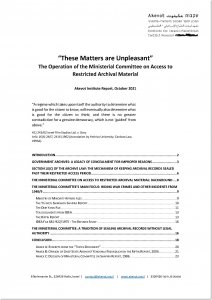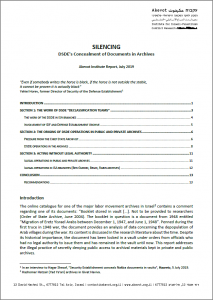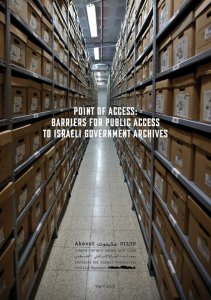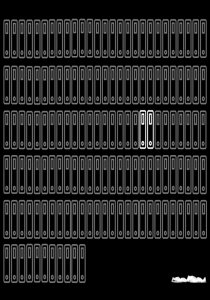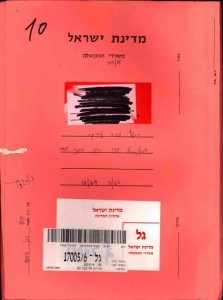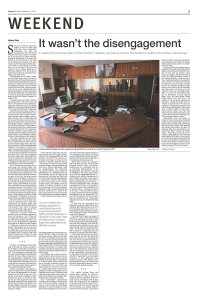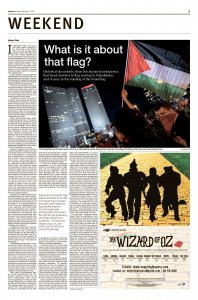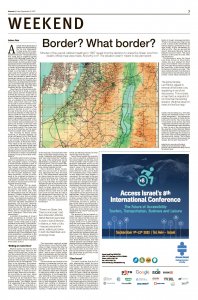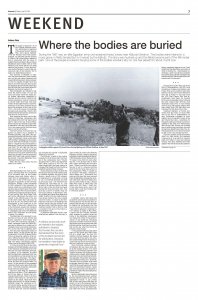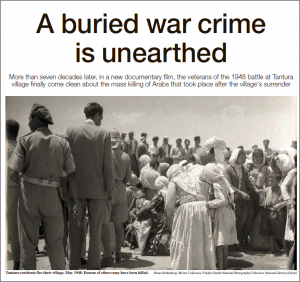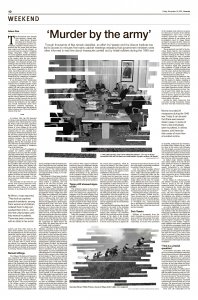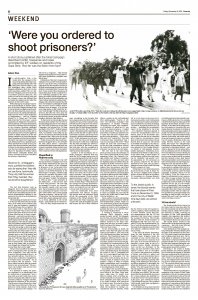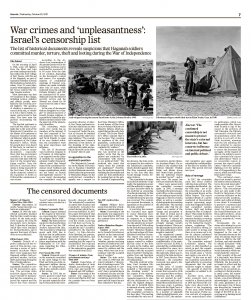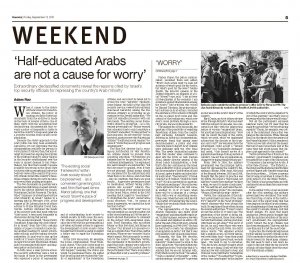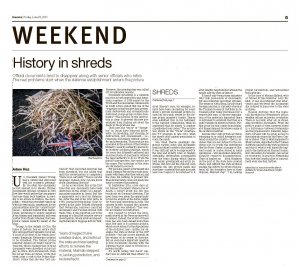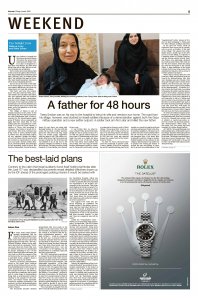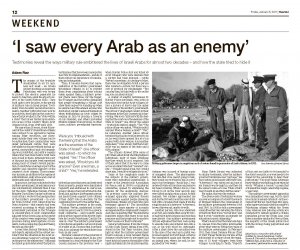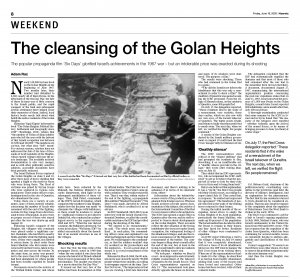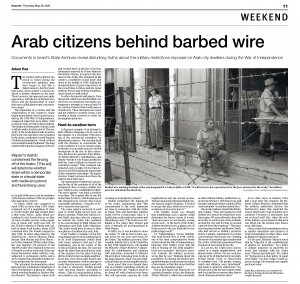-
BOOKS
-
The Military Rule 1948-1966: annotated document collection
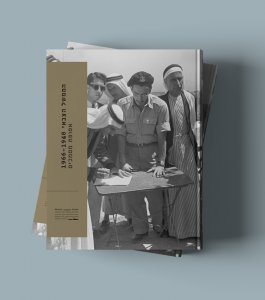
The Military Rule Book, published by Akevot Institute, is an illuminating curated collection of some 100 carefully selected, declassified documents of the 1948-1966 Military Rule. The documents include internal correspondences, meeting minutes, testimonies, maps, photos, and reports all organized and annotated to provide the reader with unprecedented insight into this silenced period of recent history. The book is only available in Hebrew at this time. For further details and purchase
-
The Looting of Arab Property during the War of Independence

The Looting of Arab Property during the War of Independence, a book by Akevot Institute researcher Adam Raz, was published by Carmel Publishing House in collaboration with Akevot Institute. Raz’s book is based on a trove of archival materials kept in various Israeli archives and addresses the mass looting of objects left behind in the homes, shops, workshops and farms the country’s Palestinian residents fled during the war. To buy the book through Carmel Publishing House (Hebrew) *** the book will soon be available in English ***
-
-
REPORTS
-
These Matters are Unpleasant
-
Silencing
-
Point of Access
Alongside preserving the records stored in it, the archive’s primary role is to provide the public with access to them. Akevot’s report Point of Access summarizes the findings of extensive research regarding the various barriers to access to Israel’s government archives. The report surveys the findings and presents recommendations for improving access and having the Government Archives fulfill their legal obligations.
-
1.29%: Access to Israeli government archives
-
-
ARTICLES AND RESEARCH
-
Appropriate tools: Israeli Ministry of Foreign Affairs and Amnesty’s Israel Section, 1969-1977
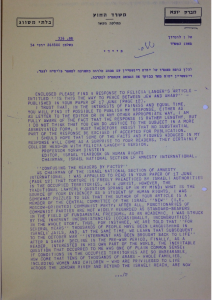
A series of documents reveals an important, and, until now, unknown aspect of the efforts the Israeli government made to deflect criticism over human rights violations which were part of the occupation since the very beginning. The documents describe events that took place during the first decade of the occupation, but they echo a practice that is still in existence today – manipulative efforts to undermine the work of human rights organizations. -
Insurance against political risk: Settlements and the Yanai governmental insurance corporation
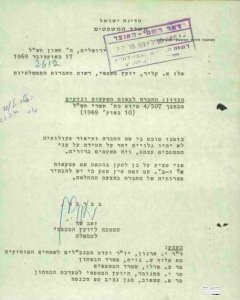
Archival records, declassified at Akevot’s request, tell the story of the financial safety net Israeli government provided for settlers and investors in the occupied territories – referred to as a “political guarantee” or “political insurance”. As use of the government guarantees gradually expanded, a government insurance corporation was created. This is the story of the political guarantee in the occupied territories and the Yanai insurance corporation. -
File GL-17005/6: the reordering of control over Palestinian citizens of Israel at the late stages of the Military Government
Israel State Archives File GL-17005/6 from the Office of the Arab Affairs Advisor at the Prime Minister’s Office contains hundreds of pages that document some of the final chapter of the Military Government over Palestinian citizens of Israel, before it was formally replaced with civilian oversight mechanisms in December 1966. Akevot’s access to the 446-page file at the archives was delayed for two years.
-
-
STORYMAPS
-
A Policy of Non-Investigation
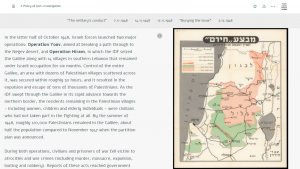
After many years in which large parts of the minutes of cabinet meetings in 1948 were heavily redacted by the Israel State Archive, most of the redactions were removed. The sections that have been exposed show that the ministers knew in real time about suspicions of crimes and atrocities that took place during the war. After a long debate, they decided not to investigate the events. Learn more and read the full meeting minutes here.
-
The Looting of Arab Property during the War of Independence
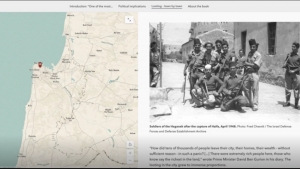 Join us on a virtual journey following the book by Akevot’s researcher Adam Raz, “Looting of Arab Property in the War of Independence”! A special website allows users to trace the mass theft as it was happening town by town, access dozens of archival documents we located and read hundreds of testimonies about what turned out to be mass pillage carried by multitudes of Israelis, soldiers and civilians, individuals and groups.
Join us on a virtual journey following the book by Akevot’s researcher Adam Raz, “Looting of Arab Property in the War of Independence”! A special website allows users to trace the mass theft as it was happening town by town, access dozens of archival documents we located and read hundreds of testimonies about what turned out to be mass pillage carried by multitudes of Israelis, soldiers and civilians, individuals and groups. -
The Military Rule 1948-1966
A new website offers an introduction to The Military Rule 1948-1966: Annotated Document Collection, published by Akevot Institute. On this site, you will have access to several of the prominent documents included in the book, as well as some of the maps, photos and charts. The Military Rule BooK includes some 100 archival documents, in addition to maps, tables and photos, and sheds light on the apparatus of the Military Rule: how it operated, its official and unofficial objectives, its character and what daily life looked like for the Palestinians subjected to it.
-
-
IN THE PRESS
-
It wasn’t the disengagement
-
What is it about Ttat flag?
-
Border? What border?
-
Where the Bodies Are Buried
-
A Buried War Crime is Unearthed
Published in Haaretz, January 21, 2022
More than seven decades later, in a new documentary film, the veterans of the 1948 battle at Tantura village finally come clean about the mass killing of Arabs that took place after the village’s surrender
-
Classified Docs Reveal Massacres of Palestinians in '48 – and What Israeli Leaders Knew
-
‘Were You Ordered to Shoot Prisoners?’
-
War Crimes and ‘Unpleasantness’: Israel’s censorship List
-
"Half educated Arabs are Not a Cause for Worry"
-
History in Shreds
-
The Best-Laid Plans
-
When Israel Censored Poets for Being 'Tools of Expression of Arab Nationalism'
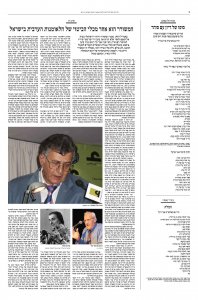
Published in Haaretz, May 21, 2021
Some 50 years ago, Druze poet Samih al-Qasim was indicted for not complying with state censorship rules before publishing a book of poems. Not all members of the Hebrew Writers Association agreed to act on his behalf. Finally, with Prime Minister Golda Meir’s intervention, his trial was canceled.
-
‘I Saw Every Arab as an Enemy’
-
The Cleansing of the Golan Heights
-
Arab Citizens Behind Barbed Wire
-
-
WEBINARS & EVENTS (in Hebrew)
-
"The word security is like rubber"
The launch event of our digital document collection Military Rule 1948-1966. The collection includes hundreds of original archive documents of the Military Rule imposed on Palestinian citizens of Israel between 1948 and 1966, and provides direct contact with documentation of one of the forgotten and repressed periods in the history of the State of Israel.
-
Mole in Kafr Qasim
In a webinar held on October 28, 2021, on the eve of the 65th anniversary of the Kafr Qassim massacre, Akevot’s researcher and author of the book The Kafr Qassem Massacre: Political Biography, Adam Raz, talked about the questions that are still open and what “Operation Mole” has to do with the massacre.
-
Introduction to the Military Rule
In a webinar that took place on July 15, 2020, Akevot’s researcher Adam Raz described the Military rule applied over Palestinian citizens of Israel from 1948 to 1966, its goals, structure, and activities.
-
The objectives of the Military Rule
In a webinar that took place on August 5, 2020, Akevot’s researcher Adam Raz examined the Military Rule’s objectives – overt and covert – based on archival documents declassified by Akevot in recent months.
-
Living under the Military Rule
In a webinar that took place on September 9, 2020, the Israeli-Palestinian writer and publicist Uda Basharat described the daily life under the Military Rule and its implications on Palestinian society in Israel.
-
The controversy over the Military Rule
In a webinar that took place on October 14, 2020, Akevot’s researcher Adam Raz recounts the controversy – across all the Israeli political factions – about the Military Rule throughout its years of existence and the sometimes-surprising positions of public figures, parties, and movements.
-
Researching the Military Rule
In a webinar that took place on January 4, 2021, we hosted some of the most prominent researchers on the Military Rule, who have written about this era in different times and from various perspectives: Sabri Jiryis, whose book “The Arabs in Israel” (1966) was the first description of the Military Rule; Dr. Sarah Ozacki-Lazar, one of the first researchers on the Military Rule; Dr. Arnon Degani, who writes about the daily life during the Military Rule. The discussion was hosted by Akevot’s researcher Adam Raz.
-
Following the book: Looting of Arab Property in the War of Independence
A webinar following the book by Akevot’s researcher Adam Raz: “Looting of Arab Property in the War of Independence.” The webinar was attended by Prof. Mustafa Kabha and Haaretz journalist Ofer Aderet, who spoke with Raz about the research for the book and the reactions to it in Israel and around the world.
-


